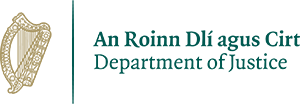If you are not visa required then you can travel to Ireland. You must present your passport and other relevant documents to the Irish immigration officer. If the immigration officer permits you to enter the State, you will have to make an application to Immigration Service Delivery (ISD) to remain in the State. If your application is successful you will have to register. Please note there is no automatic right under Irish immigration rules to come to Ireland to live with a family member.
This policy document does not cover Family reunification under the International Protection Act, 2015 and family reunification with EEA/Swiss nationals (except Irish) and UK nationals. We have provided summary information in these FAQs. However, it is important that you read the detailed information set out in the policy document.
- Immediate Family
- Nuclear family – Spouse and children under the age of 18 (child under 23 where the child is in full time education and remains dependant on the parent)
- De facto partners (a cohabiting relationship similar to marriage duly confirmed for a period exceeding two years)
- Parents
- Other family
Adopted children are dealt with in the same way as other children conditional on some additional key considerations. These include;
- That the adoption was carried out in Ireland or is recognised under Irish law
- That there has been a genuine and complete transfer of parental responsibility to the adoptive parents
- That the adopted child has the same rights as any other child of the adoptive parents and that the child is under 18 years of age.
A child who is over 18 would be permitted to apply where he or she is dependent on the care of the parent sponsor, directly or indirectly, due to a serious medical or psychological problem which makes independent life in the home country impossible. Adopted children and children in the care of a sponsor are included in this definition provided that the adoptions are recognised under Irish law.
It is your responsibility to show that the familial relationship is as claimed. This is particularly important where children are involved. In certain cases where reasonable doubt exists, the parties may be asked, by the immigration authorities, to provide DNA evidence in support of the claimed relationship.
The sponsor must assume some level of responsibility for the family member they are seeking to bring to live in Ireland. An application for a Long Stay ‘D’-Join Family visa application must be supported by a relevant sponsor. The eligibility of a sponsor to support a Long Stay ‘D’-Join Family Visa application in no way prejudges the outcome of the visa application. It does not mean that a person will be automatically granted a Long Stay ‘D’-Join Family visa application.
The sponsor may be one of the following:
- An Irish national residing, or intending to reside, in Ireland
- A beneficiary of international protection whose family reunification case is not covered by the International Protection Act, 2015
- Critical Skills Employment Permit holders
- Investors (subject to conditions including no recourse to State funds)
- Entrepreneurs
- Business Permission holders
- Researchers (including Hosting Agreement holders)
- ISD approved scholarship programme students (for example King Abdullah Scholarship Programme)
- Intra-corporate transferees
- PhD students (subject to conditions including no recourse to State funds)
- Full time non-locum doctors in employment
- Ministers of Religion (subject to conditions including no recourse to State funds)
- General Employment Permit holders
- Immigration Stamp 4 holders not covered by more favourable arrangements.
People resident in Ireland as students, except for PhD students, are not eligible to apply for family reunification.
Limited exceptions
There are limited exceptions, such as if they come within a recognised scholarship programme from another country, (for example the King Abdullah Scholarship Programme). Family reunification under these programmes last only as long as the duration of the programme, and family members are required to leave the State at the same time as the scholarship holder leaves.
An Irish national who wishes to sponsor an immediate family member must not have been totally or predominantly reliant on benefits from the Irish State for a continuous period in excess of two years immediately prior to the application.
They must meet the financial thresholds outlined in the policy document. This figure may rise for Irish nationals seeking to be joined by multiple family members.
Category A:
The following are eligible to apply for family reunification immediately:
- Critical Skills Employment Permit holders
- Investors (subject to conditions including no recourse to State funds)
- Entrepreneurs
- Business Permission holders
- Researchers (including Hosting Agreement holders)
- INIS approved scholarship programme students (for example KASP)
- Intra-corporate transferees
- PhD students (subject to conditions including no recourse to State funds)
- Full time non-locum doctors in employment
- Ministers of Religion (exception to the policy document -subject to conditions including no recourse to State funds)
Category A people, can sponsor a Long Stay ‘D’-Join Family visa before earnings are accrued. However, they must be able to provide evidence of projected earnings – a copy of a contract of employment for example. For Category A people, there is a residency requirement of two years for family reunification for family members outside of the immediate family.
Category B
The following are eligible to apply for family reunification after twelve months legal residence in the State:
- General Employment Permit holders
- Stamp 4 holders not covered by more favourable arrangements.
There is a residency requirement of one year before they may act as a sponsor for immediate/nuclear family members. There is a residency requirement of five years for family reunification for family members outside of the nuclear family. Exceptions may be considered on humanitarian grounds.
Category B people acting as sponsors for Join Family visa applications must have a minimum net income in each of the previous two years as stated in the policy document. All other categories of non-EEA national family members not covered in Category A or Category B are ineligible for family reunification.
For full details in relation to requirements for eligible non-EEA nationals legally resident in Ireland to act as a sponsor for a Long Stay ‘D’-Join family visa please refer to the policy document.
Yes, a preclearance or a visa-required person will be required to provide documents in support of your application. The documents are important because they provide information about your personal circumstances in the country from which you are applying.
Yes, for a Long Stay ’D’-Join Family visa application you will be required to submit documents from your sponsor.
Yes, original documents must be provided with your application. You must send the documents listed below to your application processing office within 30 days of creating an online application. Your application will not be processed until everything is received.
There are a number of documents that must be submitted with all Irish visa applications including for a Join Family visa.
You can apply for all Long Stay ‘D’-Join Family visa types up to 3 months before your date of travel to Ireland.
To start your application you must fill in the online application form by selecting Long Stay ‘D’-Join Family Visa. When you have completed the online form, you must submit your supporting documents within 30 days to the relevant visa office, visa application centre, embassy or consulate that is processing your application.
You must make your visa application from the country where you are ordinarily resident, i.e. the country where you live. Requests to make a visa application from any other country (e.g. a country that you are visiting while on holiday) will not be accepted.
You may be required to provide your biometrics information as part of your application. This means information about your physical characteristics. For the visa application process it refers to your fingerprints and, in some cases, a digital image of your face. We use this information to check your identity and other details. Biometrics are required from residents of Pakistan, Nigeria, China and India who make a visa application.
We will return marriage, birth and death certificates to you after your application is processed. If there are other documents you want returned, type or write a list of the documents you want and:
- Include the list with your visa application
- Include the original documents from the list (we will return these after processing)
- Include a photocopy of each document (we will keep these).
Note: You must include the original documents. Do not send photocopies only. Your application may be refused if you do not submit all documents. Even if you submit everything required, there is no guarantee that a visa will be granted.
Target times are here (table below). Due to the nature of applications some will take longer than others and the timeframes are for guidance purposes only. You should not purchase travel tickets before you know the outcome of your visa application.
| Sponsor Type | Target |
|---|---|
| Irish Citizen | You can expect your application to be completed within 6 months. This is where you have provided all required documents. |
| A person in Ireland entitled to immediate family reunification | You can expect your application to be completed within 6 months. This is where you have provided all required documents. |
| All other sponsors | You can expect your application to be completed within 12 months. This is where you have provided all required documents. |
You can check the processing times for the visa office, embassy or consulate that is handling your application on their website. Please check for details regarding our overseas visa offices. If your application is being processed by the Dublin visa office you can check the visa decision page.
For full details in relation to a refusal of your visa application including rights of appeal.
A visa only permits a person to travel to Ireland during the dates stated on the visa. It does not guarantee entry to Ireland, nor does it allow you to live in Ireland. When a person arrives at a port in Ireland an Immigration Officer has the authority to grant or deny admission and to decide on the duration a person may remain in the State, regardless of the details set out in the visa.
Yes, for details on the immigration registration process please visit our registration page where you will find all relevant information.
There are different activities that may be permitted that depend on the immigration permission granted to you following your entry to the State.

